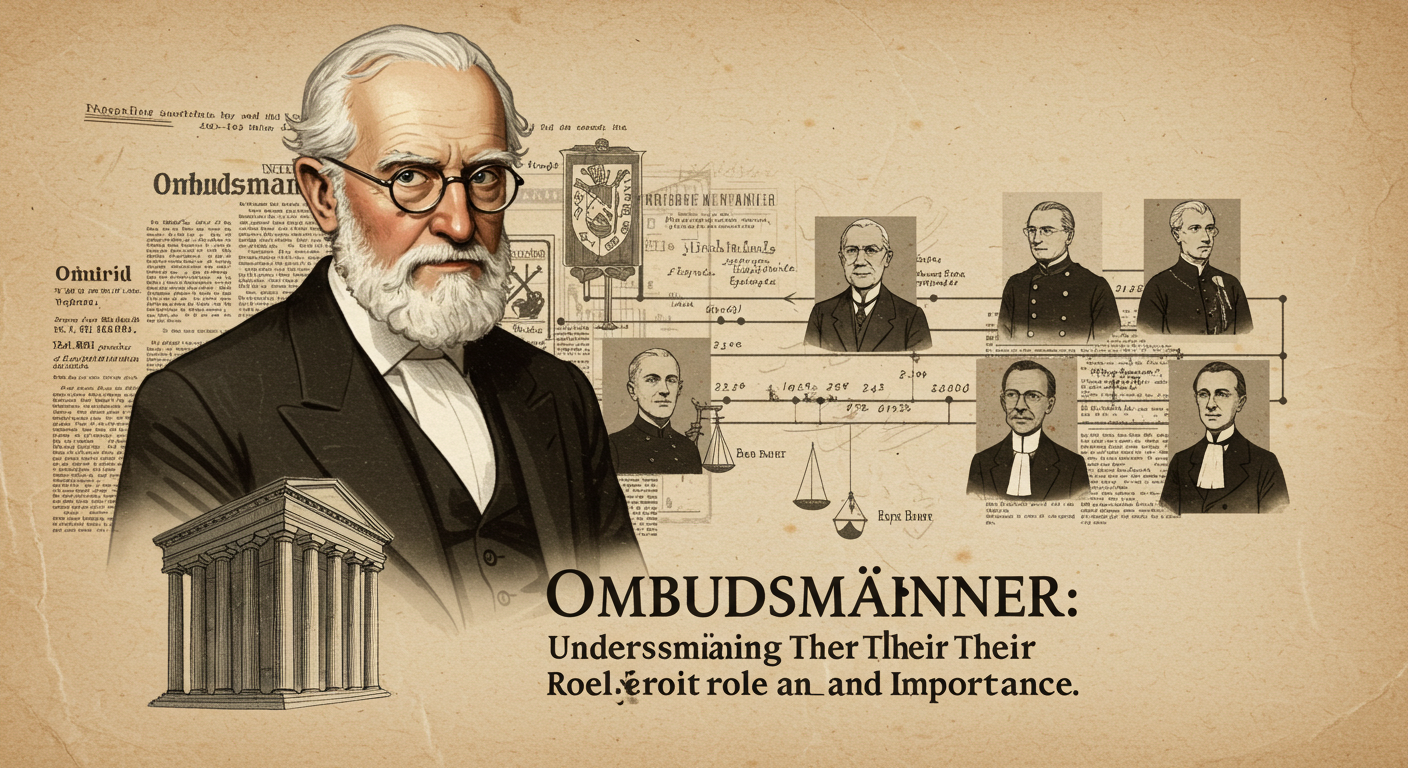Across different societies, the role of ombudsmänner has been crucial in promoting justice, accountability, and fairness. While the concept may seem complex at first, ombudsmänner are essentially advocates for the public, ensuring that institutions, organizations, and governments act responsibly. Their responsibilities extend from resolving disputes to protecting citizens’ rights, making their presence essential in today’s fast-changing world.
In this article, we will explore the history, purpose, and modern significance of ombudsmänner, while highlighting why their work continues to matter globally.
What Does the Term Ombudsmänner Mean?
The word ombudsmänner is derived from the Swedish term ombudsman, which literally means “representative” or “agent.” In its original form, it referred to a person appointed to investigate complaints from citizens about unfair treatment, maladministration, or abuse of power by authorities.
The plural term ombudsmänner emphasizes the collective body of these officials, often working at national, regional, or organizational levels. They function as mediators, giving individuals a voice against larger systems that may otherwise seem unreachable.
The Historical Roots of Ombudsmänner
The history of ombudsmänner can be traced back to Sweden in the early 19th century. The first official Ombudsman was appointed by the Swedish Parliament in 1809, serving as an independent authority to monitor government conduct.
Over time, this model spread worldwide, inspiring countries across Europe, Asia, and the Americas to create their own versions of ombudsmänner. Today, the role is recognized internationally, though specific duties may vary depending on the region or institution.
Responsibilities of Ombudsmänner
The responsibilities of ombudsmänner are both diverse and significant. Their duties often include:
1. Protecting Citizens’ Rights
Ombudsmänner investigate complaints and ensure that government bodies or organizations do not violate individual rights.
2. Ensuring Accountability
By monitoring institutions hold leaders accountable for decisions and actions.
3. Mediating Conflicts
They act as neutral mediators between citizens and authorities, aiming for fair solutions.
4. Promoting Transparency
Through investigations and reports,
encourage openness in governance and institutions.
Why Ombudsmänner Are Important
The presence of is vital for a healthy democracy and fair society. Without them, citizens often feel powerless when confronting large bureaucracies. provide balance by ensuring that individuals can challenge unfair practices.
Their importance lies not only in resolving conflicts but also in creating trust between people and institutions. By promoting accountability, they reinforce the values of justice and equality.
Different Types of Ombudsmänner
While the general role remains consistent, there are several types of each serving specific functions:
-
Parliamentary Ombudsmänner: Oversee government conduct and public administration.
-
Corporate Ombudsmänner: Address disputes within businesses and organizations.
-
Educational Ombudsmänner: Protect the rights of students and faculty in academic settings.
-
Media Ombudsmänner: Ensure responsible journalism and handle complaints from the public.
This diversity shows how adaptable the role is, meeting the needs of different sectors.
The Global Influence of Ombudsmänner
Today, many countries have embraced the concept of to strengthen their governance systems. For instance:
-
In Sweden, the original model still serves as a benchmark for fairness.
-
In Germany, ombudsmänner play a vital role in both public and private sectors.
-
In Canada and Australia, they address citizen complaints related to government agencies.
-
In corporate environments worldwide, ombudsmänner are increasingly used to resolve workplace disputes.
Their global influence demonstrates how the concept transcends culture, language, and geography.
Challenges Faced by Ombudsmänner
Despite their critical role face several challenges:
-
Limited Authority: Some lack the power to enforce decisions, reducing their effectiveness.
-
Public Awareness: Many citizens remain unaware of their right to approach ombudsmänner.
-
Independence Issues: In some regions, political interference undermines their neutrality.
-
Resource Constraints: Without adequate funding, investigations can be delayed or incomplete.
Overcoming these challenges is crucial to ensure that ombudsmänner remain trusted protectors of fairness.
The Future of Ombudsmänner
The future of ombudsmänner looks promising as societies increasingly value transparency and accountability. With technology, digital ombudsmänner may emerge, providing faster and more accessible services.
As organizations and governments face growing scrutiny, the demand for ombudsmänner will only increase. Their role will likely expand into new areas such as online privacy, environmental issues, and global human rights.
Lessons We Can Learn from Ombudsmänner
The story of offers valuable lessons:
-
Justice Must Be Accessible: Everyone deserves a way to challenge unfair treatment.
-
Independence Builds Trust: Neutrality is key to fair decision-making.
-
Accountability Creates Stronger Systems: Leaders perform better when monitored responsibly.
-
Adaptation is Vital: As new challenges arise must evolve to address them.
Final Thoughts on Ombudsmänner
In conclusion represent one of the most important institutions in modern society. Their role as mediators, watchdogs, and protectors of rights highlights their necessity in both governance and organizational settings.
By bridging the gap between individuals and powerful institutions ensure that fairness and justice remain central to social progress. As societies continue to evolve, their contributions will remain indispensable, making the legacy of even more significant in the years to come.

